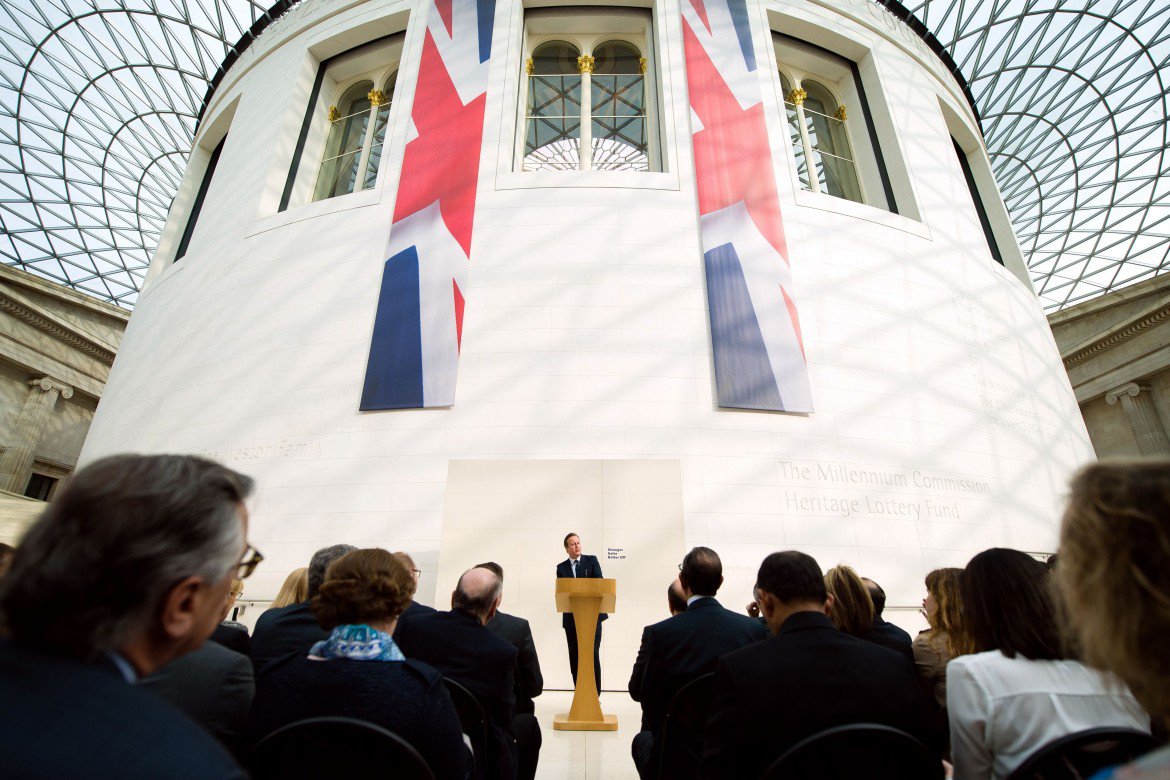Commentary
Cameron raises possibility of war if Britain leaves Europe
In a speech at the British Museum, Prime Minister David Cameron painted the Brexit in stark colors: a choice between war and peace.

Now that the hostilities over London’s mayoral elections are subsiding, the moment of truth will be June 23, when Britons will decide whether the United Kingdom will abandon the European Union, driving the temperature of the debate up to white heat. And while the latest polls indicate a country divided, it was revealed who among David Cameron’s speechwriters studied history at the university, forcing him to a furious, and perhaps superficial, refresher.
In a speech at the British Museum on Monday, which was attended by David Miliband, the Blairite who was beaten — by his brother Ed — in the race for the Labour leadership six years ago, Cameron warned that abandoning the E.U. would have harmful consequences for maintaining peace in Europe. So harmful that it would not only threaten the peace and stability of the U.K., but would lead the continent to the brink of a third world war. Ergo the true patriot, in the peroration of the prime minister, will vote to remain.
Stealing the idea of awarding the Nobel Peace Prize to the E.U. (a foolishness perhaps surmounted only by the proposal to confer it to the Internet, as some digital ultras were still arguing seriously until recently), Cameron has strung together a series of examples taken from history, ranging from the fall of the western Roman Empire to that of the Berlin wall, without, of course, omitting the due references to Waterloo, pro-Europe pleading and post-1945 Winston Churchill. All designed to demonstrate the need to remain within the E.U.
But it drastically calls into question Cameron’s historical memory and the splendid isolation policy — one of the cornerstones of euroscepticism — and liberalism so emphatically presented by the former mayor Boris Johnson who bet his career on Cameron’s conservatism.
“From Caesar’s legions to the wars of the Spanish Succession, from the Napoleonic Wars to the fall of the Berlin Wall,” Cameron said. “Proud as we are of our global reach and our global connections, Britain has always been a European power, and we always will be.”
He also added: “Whenever we turn our back on Europe, sooner or later we come to regret it. We have always had to go back in, and always at a much higher cost. … Can we be so sure that peace and stability on our continent are assured beyond any shadow of doubt? Is that a risk worth taking? I would never be so rash as to make that assumption.”
For once, the two leading figures of the ruling party in Scotland, Nicola Sturgeon and Alex Salmond, are heeding the call. The latter, Sturgeon’s predecessor at the leadership of the party and the leadership of the Scottish Parliament and SNP nationalists (who have just won the elections back), said on Monday that the decision to quit the E.U. would immediately trigger calls for another referendum to exit the United Kingdom.
Thus, the prime minister’s Urbi et Orbi of good faith and fervent Europeanism emerged. This is the same premier who announced some time ago that he would support the Brexit if Brussels had not granted the renegotiation of the participation of Great Britain in the European consensus.
For his part, rival Boris Johnson replied point by point to Cameron’s arguments, without surrendering the jokes that have made him “Boris” — given also his very serious ambitions to lead the party — in the latest chapter of this internal war between conservatives. A little later, in a speech at the headquarters of the “separatists,” Johnson ridiculed Cameron’s statements, pointing out — not without reason — that waging wars is normally a function of NATO. He followed that with far more personal attacks on his former Eton and Oxford classmate. But Westminster is well worth the price of a friendship.
Originally published at http://ilmanifesto.info/cameron-senza-di-noi-ue-in-guerra/ on 2016-05-10
